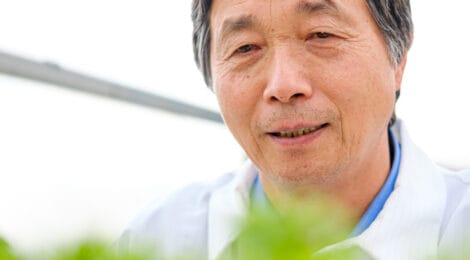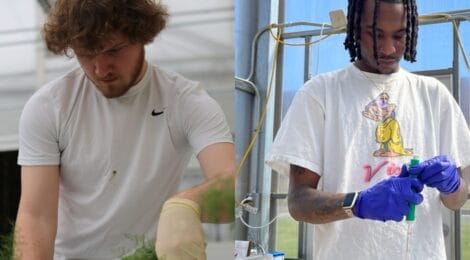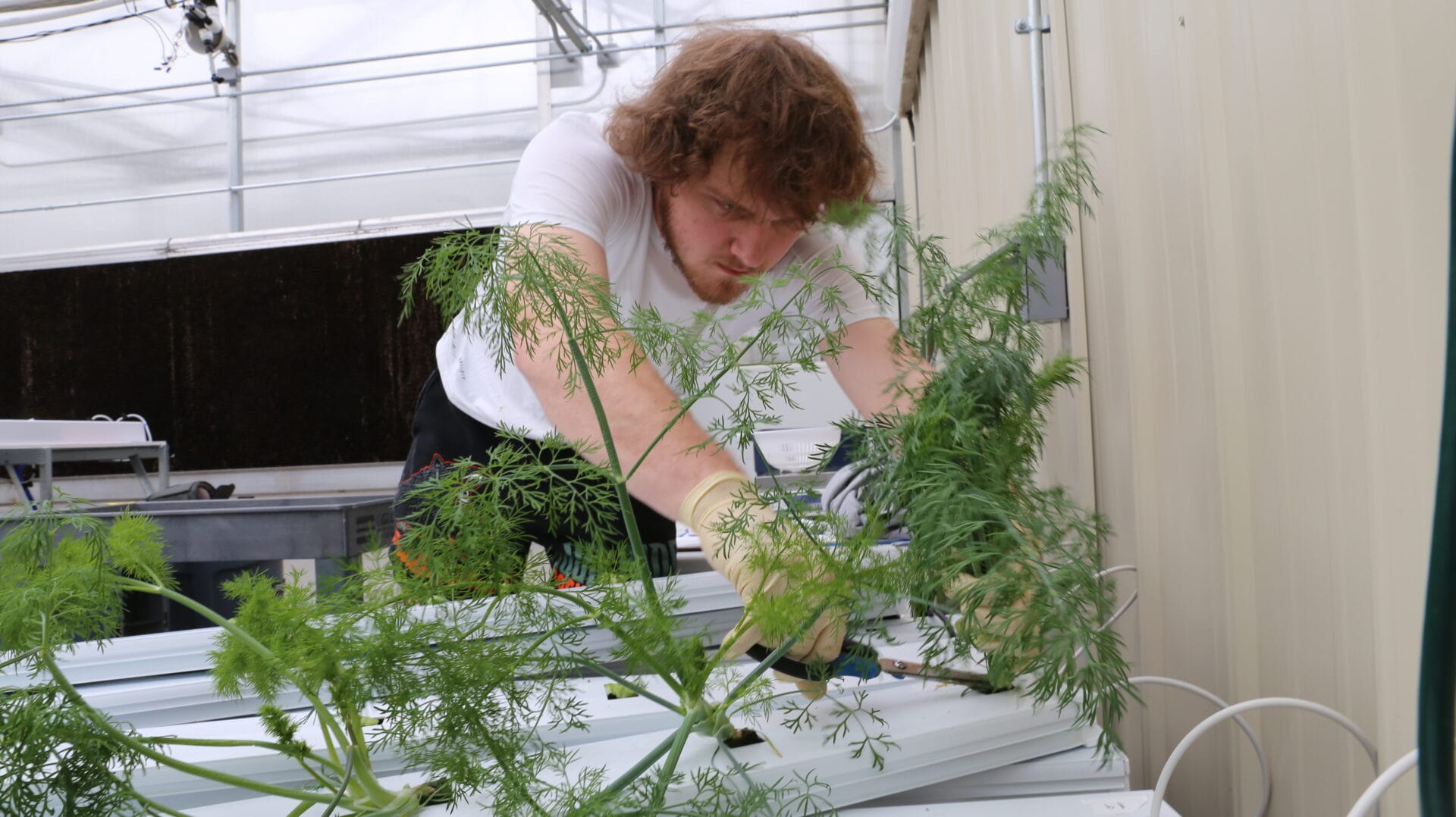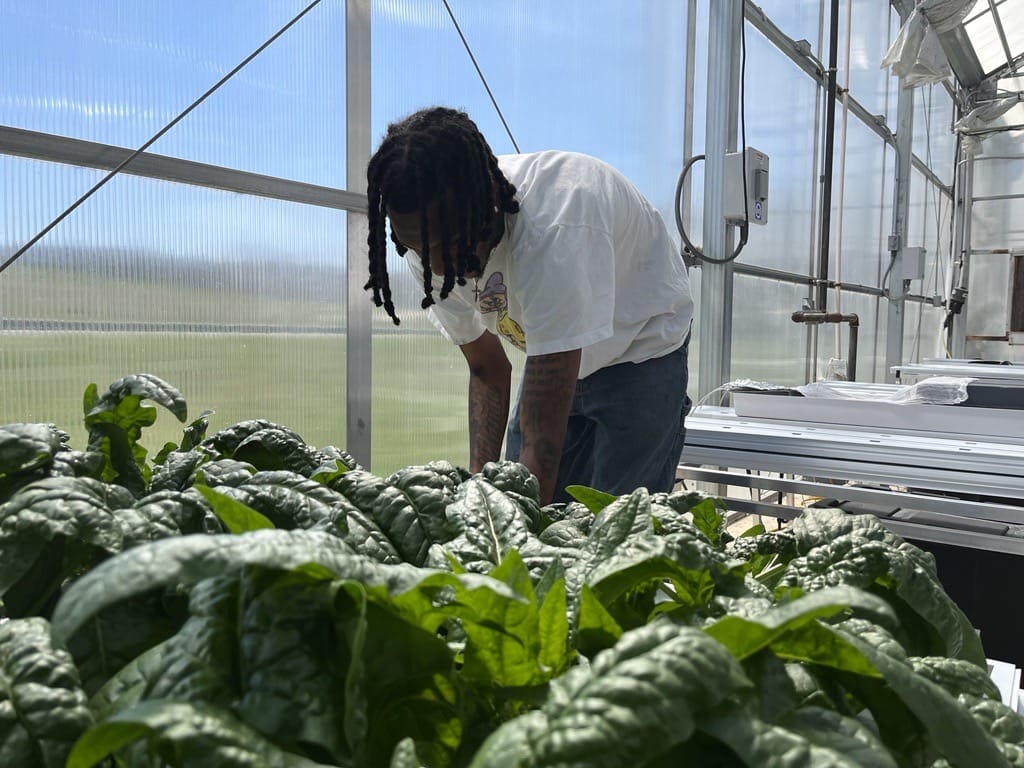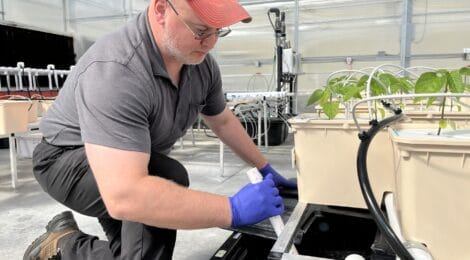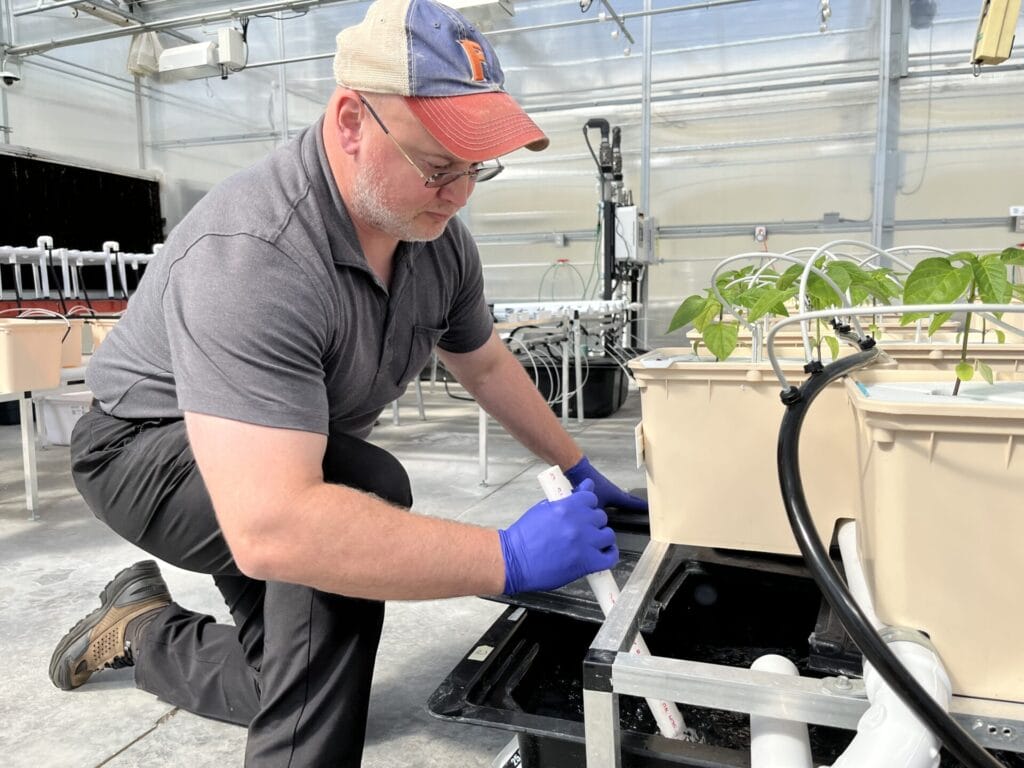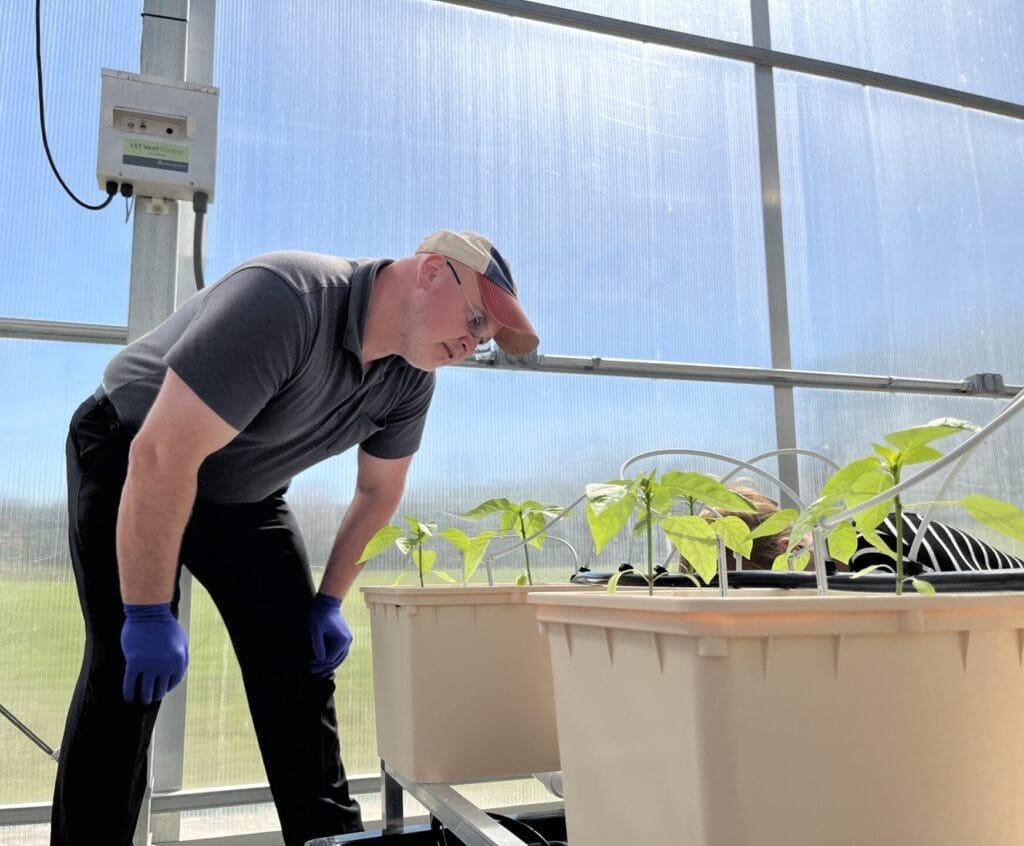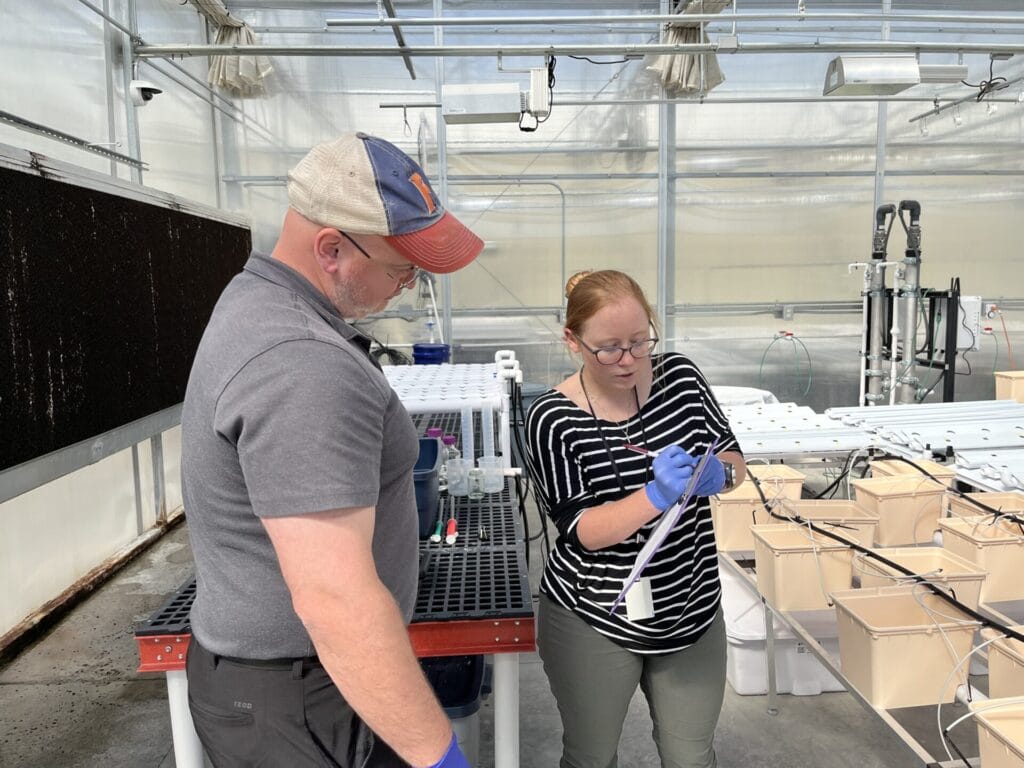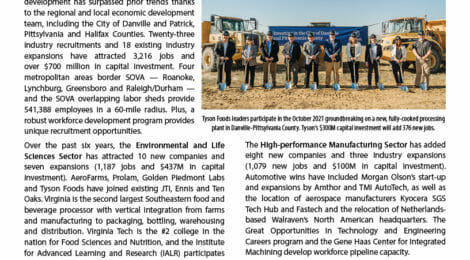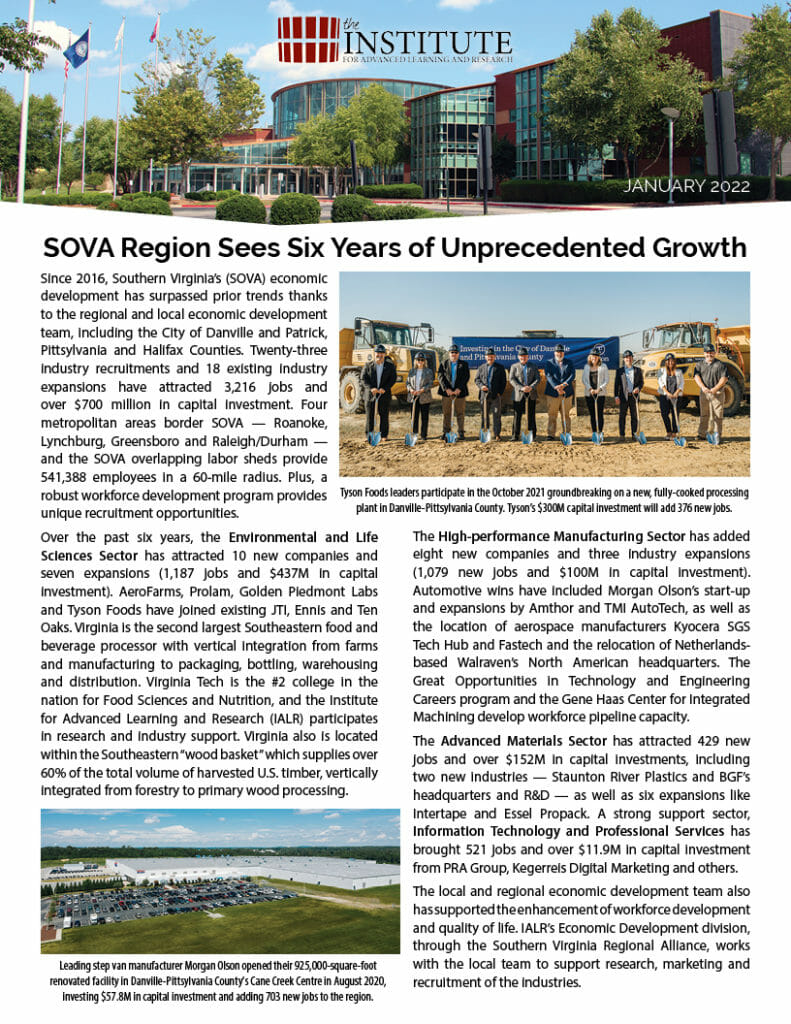The Institute for Advanced Learning and Research (IALR) is proud to announce a new study that explores the use of plant growth-promoting bacteria to significantly boost spinach yields in controlled environment agriculture (CEA). The article was published in Technology in Horticulture on July 2, 2024.
This research is another example of how bacterial endophytes – naturally occurring biostimulants found in plants – can enhance plant growth, improve nutrient uptake and increase stress tolerance, particularly in CEA.
The Study
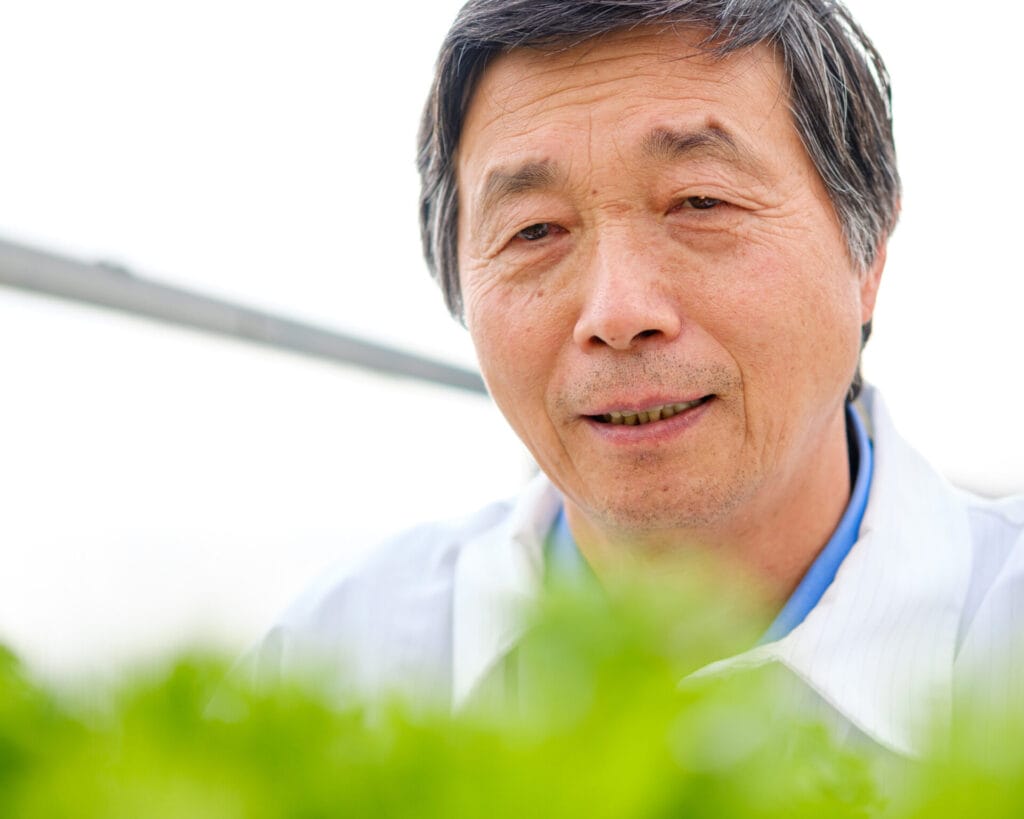
IALR’s Plant Endophyte Research Center has a library of more than 2,000 characterized bacterial endophytes. The researchers in this study tested two of those strains – officially known as Pseudomonas psychrotolerans IALR632 and Enterobacter asburiae IALR1379 – on two spinach cultivars, ‘Red Snapper’ and ‘Seaside.’
These experiments were conducted in indoor vertical nutrient film technique (NFT) hydroponic systems in the Controlled Environment Agriculture (CEA) Innovation Center, a partnership of IALR and Virginia Tech.
The study revealed that inoculations of these bacteria significantly increased the shoot fresh weight, root growth and leaf greenness of the spinach plants.
Key Findings
- Increased Yields: Inoculations of IALR632 and IALR1379 significantly increased the shoot fresh weight of ‘Red Snapper’ by 19.3% and 13.3%, and ‘Seaside’ by 17.8% and 14.1%, respectively, compared to control treatments.
- Enhanced Root Growth: Both bacterial inoculations improved root growth in ‘Red Snapper’, although ‘Seaside’ did not show similar results.
- Improved Leaf Greenness: IALR632 significantly increased leaf greenness in both spinach cultivars while IALR1379 did not.
- Effective Colonization: Both bacterial strains successfully colonized the roots and shoots of the spinach plants, confirming their endophytic property.
Overall, IALR632 proved more effective in enhancing spinach yields, root growth and leaf greenness compared to IALR1379 in indoor vertical hydroponic systems.
Significance
The Plant Endophyte Research Center and the CEA Innovation Center are focused on optimizing crop production while minimizing environmental impact. And this is not the first research publication from IALR showing the efficacy of bacterial endophytes in improving plant growth and yields.
The research team has consistently shown that endophytes – which function as natural biostimulants and biocontrol agents – can dramatically and positively affect plants in indoor hydroponic environments.
Other recent findings include:
- A publication featured in the scientific journal PLOS ONE found that a bacterial endophyte (IALR1619) is an effective biocontrol agent against Pythium ultimum for hydroponic cucumber and lettuce production.
- An article published in international peer-reviewed journal Scientia Horticulturae showed that deaminase-producing endophytic bacteria improve hydroponically grown lettuce in the greenhouse during the summer season.
- A three-year study published in 2023 found that a bacterial endophyte from sorghum leaves (IALR632) dramatically improved lettuce root development and consistently increased yield by an average of 20% or higher.
The Research Team
This research was conducted by a joint team from IALR’s Plant Endophyte Research Center and the CEA Innovation Center:
- Dr. Chuansheng Mei, Chief Scientist, IALR
- Dr. Scott Lowman, Vice President, Applied Research, IALR
- Dr. Michael Evans, Professor at the School of Plant and Environmental Sciences at Virginia Tech and Co-Director of the CEA Innovation Center
- Robert Chretien, Laboratory Research Associate, IALR
- Dr. Dongfang Zhou, a former Research Associate with Virginia Tech at the CEA Innovation Center
- Dr. Kaylee South, Virginia Tech Assistant Professor of Controlled Environment Agriculture
